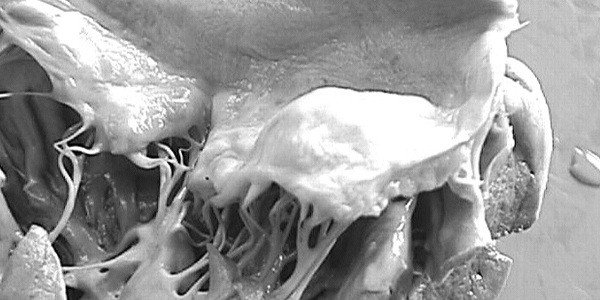Mitral valve prolapse

Mitral valve prolapse occurs when the left atrium and left ventricle of the heart does not close properly.
In PMC, the leaflets of the mitral valve bulge upward or backward toward the left atrium when the heart contracts.
The abnormality sometimes causes blood to leak back into the left atrium, a condition called mitral valve regurgitation.
For most people, PMC is not life-threatening and no treatment or lifestyle changes are needed.
But some of those affected require treatment.
What are the symptoms?
Although PMC is usually a lifelong heart abnormality, many affected people never develop symptoms.
When the prolapse is detected and diagnosed, the affected person is in most cases very surprised to learn that he has heart disease.
When clinical manifestations do occur, they are usually the result of backflow of blood through the valve /regurgitation/.
Symptoms most often manifest differently in each affected person.
In most cases, manifestations are mild and progress gradually and consist of:
• Irregular heart activity – arrhythmia;
• Dizziness or lightheadedness;
• Difficulty breathing or shortness of breath, most often when lying down or during physical exertion;
• Fatigue;
br/> • Chest pain that is not due to a heart attack or ischemic heart disease;
When should you seek medical attention?
If you think you have any of the above symptoms, seek medical attention as soon as possible.
Many clinical conditions cause the same symptoms as PMK, so a visit to your GP will clarify the cause of your complaints.
If you experience chest pains and suspect they may be due to a heart attack, seek medical attention immediately.
And if you have been diagnosed with PMC and your symptoms worsen, it is also imperative to see a medical professional.
What are the causes?
When the heart is functioning properly, the mitral valve closes completely during contraction of the left heart chamber and prevents blood from flowing back into the left atrium.
But in some people with PMC, one or both leaflets have extra tissue that protrudes like a parachute into the left atrium every time the heart muscle contracts.
This will not cause problems if only a small portion of the passing blood drains back into the left atrium.
More voluminous mitral regurgitation can cause symptoms such as shortness of breath, fatigue or dizziness.
Complications
Although most people with this abnormality never have problems, complications such as:
• Mitral valve regurgitation – the most common complication in which it does not close completely and allows some of the blood to flow back into the left atrium.
Men and hypertensives have an increased risk of developing this complication. If the amount of blood that backs up is too much surgery may be needed to correct it or to replace the valve to prevent very serious complications such as stroke.
• Arrhythmias – disturbances of the usual heart rhythm are possible and although they do not pose a threat to life, in most cases they are very unpleasant for the person who experiences them.
Treatment of mitral valve prolapse
Usually no lifestyle restrictions are recommended, only in severe mitral valve regurgitation it may be necessary to avoid excessive physical exertion and more frequent control examinations to track the condition.



